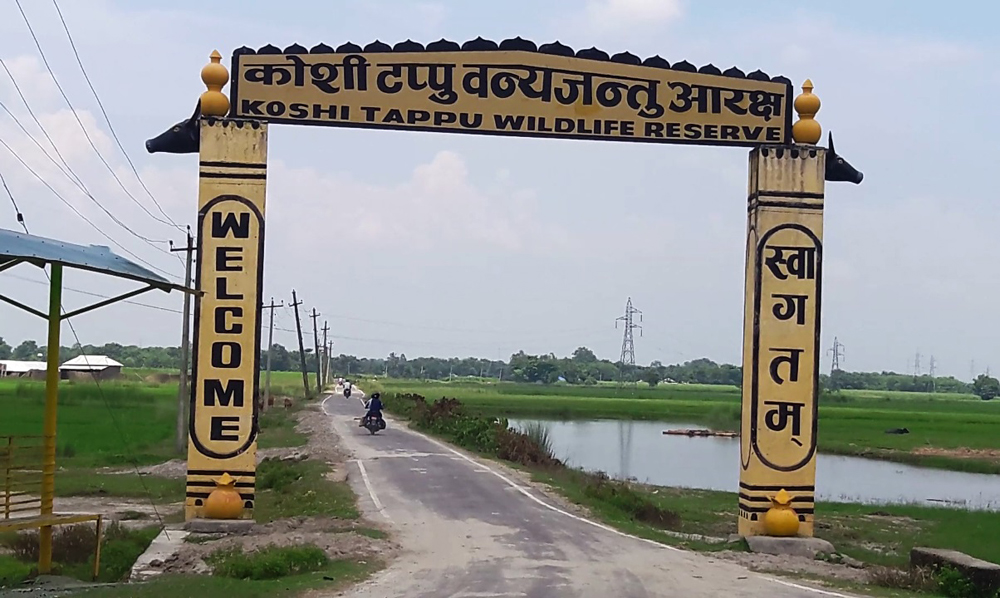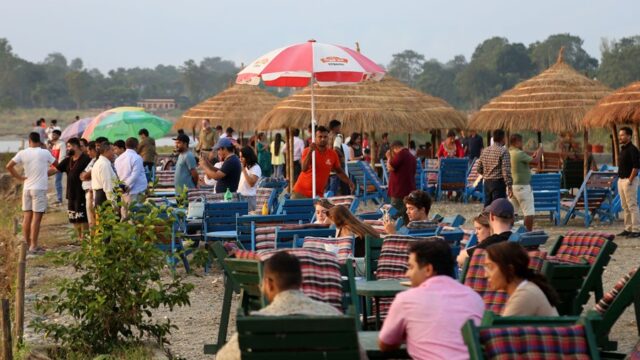Koshi Tappu Wildlife Reserve, renowned for its rich biodiversity and unique ecosystem in the eastern plains of Nepal, is set to bolster its appeal to tourists with new initiatives aimed at enhancing visitor experiences.
Spanning over 175 square kilometers in the Sunsari, Saptari, and Udayapur districts, Koshi Tappu is home to diverse wildlife, including endangered species such as the wild water buffalo, and Gangetic dolphin, and over 450 species of birds.
Recognizing its potential as a significant tourist destination, authorities are actively promoting Koshi Tappu as a prime spot for nature enthusiasts and wildlife photographers. Efforts are underway to develop eco-friendly tourism infrastructure, including nature trails, birdwatching spots, and visitor centers that highlight the region’s natural beauty and wildlife conservation efforts.
Recent collaborations between local tourism stakeholders, conservation groups, and government agencies have focused on sustainable tourism practices that minimize environmental impact while maximizing the socio-economic benefits for local communities.
“We are working towards making Koshi Tappu Wildlife Reserve a leading eco-tourism destination in Nepal,” stated a spokesperson from the Department of National Parks and Wildlife Conservation. “Our goal is to provide visitors with unforgettable experiences while preserving the natural habitat and supporting local livelihoods.”
The reserve’s strategic location along the Koshi River, combined with its tranquil landscapes and abundant wildlife, positions it as an ideal destination for both domestic and international tourists seeking authentic wildlife encounters and peaceful retreats amidst nature.
As tourism infrastructure continues to develop, stakeholders are optimistic about Koshi Tappu’s potential to contribute significantly to Nepal’s tourism industry, attracting visitors who value nature conservation and sustainable travel practices.






